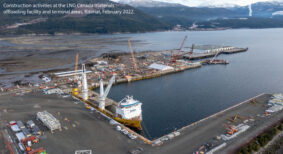Since the beginning of the COVID-19 pandemic, one issue that has garnered attention in contracts is the applicability of force majeure clauses and whether they can apply to provide relief, given how COVID-19 has impacted the ability of many parties to perform their obligations under their contracts.
Briefly, a force majeure clause aims to allocate the risk of non-performance or delayed performance due to intervening events which are beyond the control of the parties. In a construction project, a classic example of a force majeure event is a flash flood that impacts a construction site such that the contractor’s ability to continue to construct is significantly impaired or rendered impossible. Depending on whether or not there is a force majeure clause in the contract (and the nature of such clause), the contractor may be entitled to relief from non-performance or delayed performance (usually through some combination of time and/or monetary relief).
Force majeure clauses vary widely, with some common formulations as follows:
- No force majeure clause – parties are generally not relieved from their obligations under a contract notwithstanding an intervening event beyond their control, even if it significantly impacts or renders impossible their ability to perform.
- Broad and vague force majeure clause – these generally state that parties are not liable for failure to perform contractual obligations due to an event of force majeure, without any corresponding definitions or parameters, leaving it to the parties to determine what does and does not constitute a force majeure entitlement.
- Detailed force majeure clause – these specifically list out the events that fall within the scope of a force majeure event (including things such as acts of terrorism, war, labour disputes, strikes and pandemics) and clearly outline the parameters around a force majeure claim.
Unsurprisingly, even in contracts where force majeure events are clearly defined, many of these definitions do not directly address a global pandemic. Where there are broad and vague force majeure provisions, there has been uncertainty as to whether these clauses would include a global pandemic. This has led to the question of whether COVID-19 can be “shoehorned” into a pre-existing force majeure clause and in turn grant relief to the requesting party.
COVID-19 and Force Majeure
When determining whether or not a party has a force majeure claim due to COVID-19, the party must first determine whether COVID-19 “fits” within the parameters of the force majeure construct in the relevant contract. We have seen the most successful claims for force majeure events due to COVID-19 when the force majeure event definition includes pandemics, government action, public health emergency or communicable disease outbreak. If the contract only has a broad and vague force majeure clause, the parties will likely have to discuss whether or not COVID-19 constitutes a force majeure event.
Once it has been determined that COVID-19 constitutes a force majeure event, the claiming party must then generally show that it is impossible for it to perform its contractual obligations and that the consequences of COVID-19 were beyond the reasonable foresight and skill of the parties at the time the contract was entered into. In addition, force majeure clauses usually contain a number of requirements with which the party seeking the benefit of the provision must comply, including:
- Notice – written notice provisions are included to ensure certainty if a party invokes its right to rely on a force majeure event for non-performance or delayed performance. This notice must be given following the occurrence of the triggering force majeure event and failure to provide notice within the stipulated time period can void the right to make a claim.
- Reasonable Steps – the claiming party must take reasonable steps to prevent the event from occurring in the first place. In the context of COVID-19, reasonable preventative steps could include quarantine protocols, increased sanitation and policies with respect to travelling, remote work capabilities or seeking guidance from public health officials.
- Mitigation – the claiming party must mitigate the effects of the force majeure event, so far as possible, and remedy the situation in good faith, with due diligence.
Key Takeaways
Whether or not a party will be entitled to a force majeure claim due to COVID-19 will depend on the nature of the force majeure framework in the contract. To the extent there are no force majeure provisions, a party’s ability to claim force majeure relief will be challenged. If there are force majeure provisions, a party’s ability to claim (and likelihood of a successful claim) will be dependent on the nature of the relevant provisions. Prescriptive force majeure definitions that include “public health emergency, pandemic, and communicable disease outbreak”, for example, are more likely to accommodate a COVID-19 claim. It will then be incumbent on the claiming party to demonstrate that its contractual duties are impossible to perform due to COVID-19 and that the effects of COVID-19 were unforeseeable at the formation of the contract. Once this has been proven, there are often additional requirements the claiming party must follow to achieve the benefit of force majeure.
In such an uncertain time, entities negotiating construction contracts should be mindful of force majeure clauses and may need to engage in negotiation with their counterparties to ensure that COVID-19 risk is properly shared and addressed.
Samantha Cunliffe is a partner, business law group, and Liezl Behm is associate at McCarthy Tétrault LLP.









